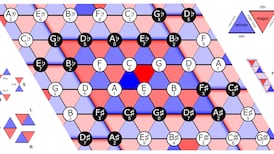UNDER THE MICROSCOPE:MY ATTENTION was recently caught by a publication from the European Molecular Biology Organisation (Embo), A Persistent Problem – Traditional Gender Roleshold back Female Scientists, by Anna Ledin, Lutz Bornmann, Frank Gannon and Gerlind Wallon (Embo Reports, Vol. 8, No 11, 2007). Frank Gannon is director general of Science Foundation Ireland. Men significantly outperform women in climbing the scientific career ladder and this study analyses some of the factors that explain this discrepancy.
More than half the European student population is female, but women hold only 15 per cent of full professorships. The optimistic prediction is that the proportions of men and women at the top will move towards equality as the increasing numbers of women entering the profession move upwards. The pessimistic view is that the gender gap at the top will remain because the success rate of women is lower at every step on the career ladder. The Embo publication lends credence to the pessimistic view.
From 1996 onwards the success rate of women who apply for long-term Embo fellowships has been 20 per cent lower than men, despite Embo’s commitment to gender equality. The numbers of female and male applications are approximately equal and the only criterion for selection is scientific quality. So why are men performing better?
One possible answer is gender bias in the processing of applications. This was tested by eliminating all references to gender from two rounds of applications in 2006, but the males continued to outperform the female applicants by 20 per cent. So, gender bias in processing applications certainly does not explain the differential success rates.
The authors of the Embo report then carefully analysed bibliometric data for all 1998 applicants, ie analysis of the numbers and quality of their scientific papers, as judged by the prestige of the journals in which they were published, and by how often the papers were cited later by other papers.
This data was calculated for 1998 and also for the period 1998 to 2006.
This analysis showed that the men who won awards in 1998 had published more papers than the women who won awards and the results to 2006 showed that this publication gap widened as men and women moved through the early parts of their careers.
The Embo study continued with an analysis of questionnaires completed by male and female applicants for Embo fellowships. This data clearly indicates that traditional gender roles play a huge part in determining male and female outcomes in scientific careers – the notion that the male goes to work to support the family, the female stays home to rear the young. Strong echoes of this role-divide ensure that, even while engaged on PhD work, females, on average, are pulled to devote less energy to their scientific work than male colleagues and this pull grows stronger as time marches on. Women feel under pressure to follow their partners to their new job locations, which may not suit the woman’s own professional development.
And, of course, women bear children and take maternity leave, interrupting their scientific work.
I have been looking at science from the inside for a long time and I am well aware of the monk-like dedication required to climb to the top of the academic scientific tree. It is undoubtedly more difficult for a woman than a man to make this climb while at the same time bearing and rearing happy children. Many women do manage to do both, but it is difficult. The current situation is no bed of roses for men either. The criteria that must be met to reach the upper rungs of the career ladder are growing more intimidating, putting some at risk of drifting into narrowed lives, impoverished relationships and workaholism.
I once worked in a laboratory where our group leader never took a holiday. Eventually his wife persuaded him to go with the family for a week’s holiday at a lake-side resort. They left for the lake on Saturday. Next Wednesday morning he was back in the lab – he couldn’t stand the enforced “idleness”.
Science, engineering and technology (Set) are crucial to Ireland’s economic future, but society has not yet accepted certain consequential implications of this reality. I have written before of the great difficulty we have in attracting the brightest students into Set while society continues to value and reward the traditional professions of medicine, law and finance far more than it rewards the Set professions.
We are also losing many female Set PhD graduates to the profession because of the difficulties they encounter in trying to balance family life and very demanding careers.
Society must re-evaluate and re-jig the demands and supports it offers to female, and male, scientists, to allow them to make their vital contributions to our economy and culture, while at the same time nurturing family life and their own personal development.
William Reville is UCC’s associate professor of biochemistry and public awareness of science officer – understandingscience.ucc.ie














